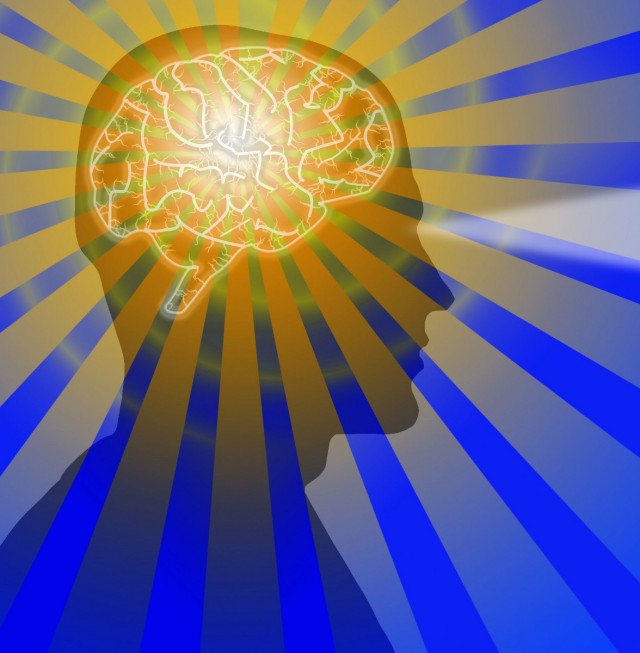
I’m going to start out by admitting that my knowledge of yoga and marijuana far surpass my knowledge of brain chemistry. So, what follows is by no means resting on anything more than my own imperfect understanding of things.
What I believe to be true about brain chemistry, at least in this context: repetition (experience) informs reaction (behavior).
Basically what that means is that some of our behaviors are patterned responses. Take the story of Pavlov’s Dog. Pavlov was a scientist who, through conditioned stimulus, trained a dog to salivate at the sound of a bell. He would ring a bell then immediately give the dog a treat. He did this over and over until eventually the dog, conditioned to believe that a bell ringing means a treat is inbound, would start to salivate in preparation for his treat whenever the bell rang.
It turns out humans aren’t that different. If you’ve ever had a bad experience with rotten milk, simply smelling milk in the future (or even thinking about milk) can give you genuine physiological reactions even though there is no milk in your mouth and you have no intention of drinking any. If we extrapolate that notion to emotional and mental re-activity, we can see similar trends emerge.
For instance, when I was younger my parents yelled at each other a lot (they eventually, mercifully, divorced). As a child around that hostility, I used to feel scared, nervous and small. Even today when I hear a random couple yelling at each other, I catch a flash of that same reaction starting to rise up in my chest. This phenomenon also applies to positive stimulus as well.
As I understand it, when we have a reaction to something, our brains actually lay a neural track into our tissue so that, should that reaction be necessary again in the future, the road is already paved, so to speak. Well, the more we react to something in a similar fashion, the stronger that neural track becomes, like a wagon wheel rut. The more times the wheel travels the path, the deeper the trough becomes.
How does this all apply to yoga and cannabis?

One of the tenets of yoga is striving to achieve a place of non-re-activity, a place of equanimity. The poses in a class are designed to put you in a safe, but unfamiliar/uncomfortable place to engender an opportunity to choose not to react. Say you’re in a deep lunge pose or a challenging balancing pose. The normal reaction to this kind of difficult situation is to hold your breath, purse your lips, flare your nostrils–basically do everything you can to hide the fact that this is challenging, so that our ego won’t have to face something that doesn’t reinforce it’s own perfection. Through the yoga practice you learn to face that challenge with peaceful, compassionate acceptance. Do this enough and you can turn any difficult moment into a yoga pose. If you burn your hand, if your in-laws are visiting, if your car gets stolen–whatever the difficult moment, you can still find that quiet, unchanging place inside of yourself and make a choice to be non-reactive and calm.
The wagon wheel ruts in your mind slowly fill in as the path becomes disused and a new, positive “rut” gets installed. Thus, your brain has actually rewired itself and turned you into a more naturally calm and non-reactive person. In essence, you have trained your brain that the proper reaction to stress is non-reaction. You are altering the “normal” state of your mind from business to calm; from being at the mercy of your reactions to choosing your actions.
Cannabis does something similar I think. The more time we spend in that happy, peaceful mindset (whether it’s marijuana-aided or not) the more likely our brains are to reset and let that happy place be the new normal. Think about it in terms of being permabaked. There are times when I’m not stoned that people think I am and times when I am stoned when they have no idea. That tells me that my mind has actually begun changing from an angry, reactive, judgmental outlook to something far more benevolent and healthy.
For whatever reason and verified only by the countless anecdotal evidence of personal accounting, smoking weed has a strong proclivity to engender feelings of interconnectedness and loving kindness. When it is easier to see yourself as part of a intricately connected life force, the urge to act carelessly, selfishly and cruel takes a much smaller role as a motivator of your action.
This is not to say that getting stoned is a replacement for the disciplined work and self-awareness that comes from a yoga practice. But if yoga was a sport, cannabis might finally be a performance enhancing drug!
I jest. The point is that there is so much competition, fear, and negativity in our world that whatever instills in us a sense of peace, compassion, and empathy can only open the door for a kinder culture and a happier planet.
Roast a fatty and roll out your mat!









